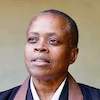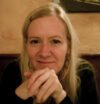
Paul R. Fulton, Ed.D., IMP Certification Course Director is a clinical psychologist and founding member of IMP. He received his doctoral degree in Comparative Human Development from Harvard University and his clinical training through Harvard Medical School at Cambridge Hospital. He has served as clinical director of a large state psychiatric facility, directed an outpatient clinic for deinstitutionalized patients, program director for a private psychiatric hospital, and director of mental health for a large managed care organization. A 50 year student of the integration of Buddhism and psychology, Dr. Fulton teaches internationally about psychology and meditation for many years and is author of a number of book chapters, and is a co-editor of Mindfulness and Psychotherapy, Second Edition. Dr. Fulton is also on the board of directors of the Barre Center for Buddhist Studies, a consulting instructor for Harvard Pilgrim’s Mind the Moment program, and maintains a private practice in Newton, Massachusetts. He is co-editor and co-author of Mindfulness and Psychotherapy, and author of numerous papers and book chapters. You can learn more about Paul on his website: www.PaulFulton.org

Jorge Armesto, PhD, Ed.M. C-IAYT, is a bilingual clinical psychologist in private practice in Rhode Island and Massachusetts, where he works with linguistically diverse communities. Jorge is passionate about the intersection of psychology, mindfulness, spirituality, and body-focused practices. His work seeks to understand how multiple sources of oppression and resiliency intersect and inform the lived experiences of individuals, groups, and communities. Jorge is a Certified Mindful Self-Compassion teacher and Certified Yoga Therapist. Jorge is a graduate of the Certificate Program in Mindfulness and Psychotherapy at IMP and has a research psychologist appointment at the Providence VA. Central to Jorge’s clinical work and teaching is helping individuals and groups practice being more compassionate toward themselves and others. He believes that we transform suffering by connecting heart, body, mind, and spirit. Jorge practices in the Plum Village tradition and is a member of the Order of Interbeing. In his free time, Jorge loves to cook, dance to the Afro-Cuban rhythms of salsa, build community, and spend time with family, friends, and his poodle, Tashi.

John Briere, Ph.D., is an Associate Professor of Psychiatry and Psychology at the Keck School of Medicine, University of Southern California, and Center Director of the USC Adolescent Trauma Training Center of the National Child Traumatic Stress Network. A past president of the International Society for Traumatic Stress Studies, he is recipient of the Award for Outstanding Contributions to the Science of Trauma Psychology from the American Psychological Association. He has written on Buddhist psychology and mindfulness as they relate to trauma, and teaches on these topics internationally. For more information visit his website at www.johnbriere.com.

Jud Brewer MD PhD, is a thought leader in the field of habit change and the “science of self-mastery”, having combined over 20 years of experience with mindfulness training with his scientific research therein. He is the Director of Research and Innovation at the Mindfulness Center and associate professor in Behavioral and Social Sciences and Psychiatry at the Schools of Public Health & Medicine at Brown University. He also is a research affiliate at MIT. A psychiatrist and internationally known expert in mindfulness training for addictions, Brewer has developed and tested novel mindfulness programs for habit change, including both in-person and app-based treatments for smoking, emotional eating, and anxiety. He has also studied the underlying neural mechanisms of mindfulness using standard and real-time fMRI and EEG neurofeedback. He has trained US Olympic athletes and coaches, foreign government ministers, and his work has been featured on 60 Minutes, TED (4th most viewed talk of 2016, with 12+ Million views), Time magazine (top 100 new health discoveries of 2013), Forbes, BBC, NPR, Al Jazeera (documentary about his research), Businessweek and others. His work has been funded by the National Institutes of Health, American Heart Association, among others. Dr. Brewer founded MindSciences to move his discoveries of clinical evidence behind mindfulness for anxiety, eating, smoking and other behavior change into the hands of consumers (see www.drjud.com for more information). He is the author of The Craving Mind: from cigarettes to smartphones to love, why we get hooked and how we can break bad habits (New Haven: Yale University Press, 2017). Follow him on twitter @judbrewer

Robert Chodo Campbell, HCC, co-founded the New York Zen Center for Contemplative Care, the first Buddhist organization to offer fully accredited chaplaincy training in America. He co-developed the Foundations in Buddhist Contemplative Care Training Program. Chodo is part of the core faculty for the Buddhist Track in the Master in Pastoral Care and Counseling at NYZCCCC’s education partner, New York Theological Seminary. He is Co-Director of Contemplative Care Services for the Department of Integrative Medicine at Beth Israel Medical Center. He wrote the chapter “The Turning of the Dharma Wheel in Its Many Forms” in The Arts of Contemplative Care: Pioneering Voices in Buddhist Chaplaincy and Pastoral Work. He is a Senior Zen Buddhist monk, Dharma Teacher, and senior chaplain.

Koshin Paley Ellison, MFA, LMSW, DMin, co-founded the New York Zen Center for Contemplative Care, the first Buddhist organization to offer fully accredited chaplaincy training in America. He co-developed the Foundations in Buddhist Contemplative Care Training Program. Koshin leads the Buddhist Track in the Master in Pastoral Care and Counseling at NYZCCCC’s education partner, New York Theological Seminary. He is the co-author of the chapter “Rituals and Resilience,” in Creating Spiritual and Psychological Resilience. He also wrote the chapter “The Jeweled Net: What Dogen and the Avatamsaka Sutra Can Offer Us as Spiritual Caregivers,” in The Arts of Contemplative Care: Pioneering Voices in Buddhist Chaplaincy and Pastoral Work. He is a Senior Zen Buddhist Monk, Dharma Teacher, poet, chaplaincy supervisor and Jungian psychotherapist. Website: www.zencare.org

Susan Fairchild, MA, is psychotherapist in private practice in Boston, MA. In addition to private practice, Susan works at the Center for Mindfulness and Compassion at Cambridge Health Alliance teaching Mindful Self-Compassion and leading ad hoc retreats. She is also an independent contractor at the Providence VA and Regional Ambassador for The Yellow Tulip Project (a nonprofit organization dedicated to reducing stigma around mental health). For many years, she was on the staff at Worcester Polytechnic Institute where she created and taught a 7-week mindfulness curriculum, drop-in meditation and coordinated a mindful eating program. Susan completed the teacher training for Mindful Self Compassion through the UCSD Center for Mindfulness and is a graduate of the Certificate Program in Mindfulness and Psychotherapy. She is a long-time meditator and practices in the Insight tradition.

Christopher Germer, PhD is a clinical psychologist and Lecturer on Psychiatry (Part-time) at Harvard Medical School. He is a co-developer of the Mindful Self-Compassion (MSC) program, which has been taught to over 100,000 people around the world, author of The Mindful Path to Self-Compassion and co-author of Teaching the Mindful Self-Compassion Program and The Mindful Self-Compassion Workbook. Dr. Germer is a founding faculty member of the Institute for Meditation and Psychotherapy as well as the Center for Mindfulness and Compassion, Cambridge Health Alliance, Harvard Medical School. He teaches and leads workshops internationally on mindfulness and compassion, and has a private practice in Arlington, Massachusetts, USA specializing in mindfulness and compassion-based psychotherapy. More about Chris can be found on his websites: https://chrisgermer.com and https://centerformsc.org

Susan Kaiser Greenland, is a former corporate attorney who developed the “Inner Kids” mindful awareness program for children, teens and their families. Research on the Inner Kids elementary school program was conducted at the Mindful Awareness Research Center at UCLA and is published in the Journal of Applied School Psychology. Susan is author of The Mindful Child: How to Help Your Kid Manage Stress and Become Happier, Kinder, and More Compassionate (Free Press, 2010). She teaches children, parents and professionals around the world and consults with various organizations on teaching mindful awareness in an age-appropriate and secular manner. She has spoken at universities, medical centers and schools, both public and private, worldwide.

Rick Hanson, Ph.D., is a neuropsychologist and author of Hardwiring Happiness: The New Brain Science of Contentment, Calm, and Confidence (from Random House in October, 2013; in 4 languages), Buddha’s Brain: The Practical Neuroscience of Happiness, Love, and Wisdom (New Harbinger; in 24 languages), Just One Thing: Developing a Buddha Brain One Simple Practice at a Time (New Harbinger; in 12 languages), and Mother Nurture: A Mother’s Guide to Health in Body, Mind, and Intimate Relationships (Penguin). Founder of the Wellspring Institute for Neuroscience and Contemplative Wisdom and an Affiliate of the Greater Good Science Center at UC Berkeley, he’s been an invited speaker at Oxford, Stanford, and Harvard, and taught in meditation centers worldwide. An authority on self-directed neuroplasticity, Dr. Hanson’s work has been featured on the BBC, NPR, CBC, FoxBusiness, Consumer Reports Health, U.S. News and World Report, and O Magazine, and his articles have appeared in Tricycle Magazine, Insight Journal, and Inquiring Mind. He has several audio programs with Sounds True, he edits the Wise Brain Bulletin, and his weekly e-newsletter – Just One Thing – has over 75,000 subscribers, and also appears on Huffington Post, Psychology Today, and other major websites. A summa cum laude graduate of UCLA, Dr. Hanson has been a trustee of Saybrook University, and he served on the board of Spirit Rock Meditation Center for nine years, and was President of the Board of FamilyWorks, a community agency. He began meditating in 1974, trained in several traditions, and leads a weekly meditation gathering in San Rafael, California. He enjoys rock-climbing and taking a break from emails. He and his wife have two adult children.

Shelly Harrell, Ph.D. is a psychologist with areas of specialization in multicultural and community psychology. Her research interests include cultural dimensions of wellness and positive well-being, racism-related stress, resilience-oriented stress management interventions, culturally-diverse contemplative practices, humanistic-existential and integrative approaches to psychotherapy, and African American mental health. Her current research focuses on the development of stress management and strengths-based interventions with diverse populations in community and clinical settings. Dr. Harrell has published in the areas of racism and mental health, race and clinical supervision, cultural issues in positive psychology, interventions with African Americans, psychospiritual principles for working with African American women, and therapeutic journaling. She is a frequent presenter and invited speaker at national conferences and serves as a consultant to educational and community organizations on cultural diversity.
Dr. Harrell currently serves as Research Coordinator for the PsyD program where she chairs dissertations, does clinical supervision, and teaches in the areas of psychotherapy skills, cultural diversity, and data analysis. Dr. Harrell maintains a small psychotherapy and consultation practice with a focus on couples and working with clients from culturally diverse racial/ethnic groups.

Sara W. Lazar, PhD, is Assistant in Psychology, Massachusetts General Hospital; Instructor in Psychology, Department of Psychiatry, Harvard Medical School; board of directors, Institute for Meditation and Psychotherapy; Contributing Author of Mindfulness and Psychotherapy; Complementary and Alternative Medicine in Rehabilitation.

Zenju Earthlyn Manuel, ( she/her), is an author, poet, ordained Zen Buddhist priest, teacher, artist, and drum medicine woman. The essence of all her transmissions come together in her teachings including these books, Sanctuary: A Meditation on Home, Homelessness, and Belonging, The Way of Tenderness: Awakening Through Race, Sexuality, and Gender (print and audio) and Black Angel Cards: 36 Oracles and Messages for Divining Your Life. Zenju was born in Los Angeles, CA and raised in the Church of Christ. She followed the Nichiren tradition / Soka Gakkai for 15 years, eventually leading her to the path of Soto Zen. She is the dharma heir of Buddha and the late Zenkei Blanche Hartman in the Shunryu Suzuki Roshi lineage through the San Francisco Zen Center (SFZC). Her practice is influenced by Native American and African indigenous traditions. Zenju holds a Ph.D. and worked for decades as a social science researcher and development director for arts organizations serving women and girls, and supporting cultural arts, and mental health.

Stephanie Morgan, PsyD, MSW
Former member of the Board of Directors, Institute for Meditation and Psychotherapy; contributing author, Mindfulness and Psychotherapy; private practice, Manchester-by-the-Sea.


Bill Morgan, PsyD and Susan Morgan, CNS are long-standing meditation practitioners and psychotherapists in the Boston area. They are board members of the Institute for Meditation and Psychotherapy. Together, they have been leading retreats for mental health professionals for over 15 years.

Andrew Olendzki, PhD
Senior Scholar, Barre Center for Buddhist Studies, Barre; teacher at numerous colleges and universities; contributing author, Mindfulness and Psychotherapy.

Lama Rod Owens was recognized by the Kagyu school of Tibetan Buddhism after receiving his teaching authorization from his root teacher the Venerable Lama Norlha Rinpoche upon completing the traditional 3-year silent retreat program at Kagyu Thubten Chöling Monastery (KTC) outside of New York City. Since coming out of retreat he has completed his Master of Divinity degree at Harvard Divinity School. Lama Rod also practices, studies, and teaches secular mindfulness and is a teacher with Inward Bound Mindfulness Education (iBme) where he is also a faculty member for the organization’s teacher training program. He is also heavily engaged in social change activism and has authored a book with Rev. angel Kyodo williams and Jasmine Syedullah entitled, Radical Dharma, Talking Race, Love and Liberation. His most recent book is Love and Rage (2020).

Susan M. Pollak, MTS, EdD, is a psychologist in private practice in Cambridge, Massachusetts. She is a longtime student of meditation and yoga who has been integrating the practices of meditation into psychotherapy since the 1980s. Dr. Pollak is cofounder and teacher at the Center for Mindfulness and Compassion at Harvard Medical School/ Cambridge Health Alliance and president of the Institute for Meditation and Psychotherapy. Dr. Pollak is a co-editor of The Cultural Transition; and a contributing author of Mapping the Moral Domain; Evocative Objects; and Mindfulness and Psychotherapy, 2nd Edition. She is the coauthor of Sitting Together: Essential Skills for Mindfulness-Based Psychotherapy and the author of the new book, Self-Compassion for Parents: Nurture Your Child by Caring for Yourself.

Lizabeth Roemer, PhD, Professor of Psychology, University of Massachusetts, Boston; co-author: The Mindful Way Through Anxiety and Mindfulness and Acceptance Based Behavioral Therapies in Practice; Co-Editor: Acceptance and Mindfulness-Based Approaches to Anxiety: Conceptualization and Treatment; Contributing Author: Mindfulness and Acceptance: Expanding the Cognitive Behavioral Tradition

Alice J. Rosen, MS.Ed, LMHC, is a psychotherapist, and educator practicing in Concord, MA. for 25 years. She offers workshops and groups focused upon creating a healthy and satisfying relationship with food and body. Alice is former Director of Education of Feeding Ourselves (SM) , and founder of “The Conscious Cafe,” “The No-Diet Workshop,” and “Self-Led Eating Intensives,” for therapists who want to embody an understanding of mindful eating. Her publications include her column, “Body Intelligence Report” which appeared for three years in the journal-letter, Food Issues. Alice also authored and recorded The Feeding Ourselves Method audio CD, an interactive support tool and teaching guide. Mindfulness is a key reference point for Alice, who was first introduced to practice in 1973. Alice’s early training is in Expressive Therapies, and she has trained since 2003 in Internal Family Systems.

Zev Schuman-Olivier, MD, is the medical director at WestBridge Community Services and conducts clinical research through affiliations with Harvard Medical School Department of Psychiatry and the Center for Technology and Behavioral Health at the Geisel School of Medicine at Dartmouth. WestBridge is a national non-profit community treatment program, which uses an assertive community treatment approach and provides family-centered treatment for people with co-occurring mental illness and substance use disorders. In his role at WestBridge, he directs the ONCOURSE college student support program. In 2004, he helped coordinate the first NIH-funded, randomized controlled trial of a mindfulness-oriented treatment for substance dependence, called Spiritual Self Schema therapy. He completed adult psychiatry residency at Harvard Medical School/Cambridge Health Alliance, and he was awarded the Young Investigator Award at the American Academy of Addiction Psychiatry for his ongoing research on buprenorphine for opioid dependence. He completed the Harvard Medical School addiction psychiatry fellowship and was a winner of the Dupont-Warren psychiatry research fellowship at Harvard Medical School. He has long had a special interest in research integrating mindfulness into addiction treatment and recently completed a trial of mindfulness training for smoking cessation funded by the National Institute for Drug Abuse and the Mind & Life Institute. He also conducts research among people with co-occurring mental illness and substance dependence as well as emerging adults with substance misuse. He serves as a faculty member on the Institute for Meditation and Psychotherapy.

Zindel Segal, PhD, is Distinguished Professor of Psychology in Mood Disorders at the University of Toronto – Scarborough and a Senior Scientist in the Campbell Family Research Institute at the Centre for Addiction and Mental Health. Dr. Segal has studied and published widely on psychological treatments for depression for more than 30 years, especially the nature of psychological prophylaxis for this recurrent and disabling disorder. His early work helped to characterize psychological markers of relapse vulnerability in affective disorder, and provided the empirical rationale for offering training in mindfulness mediation to recurrently depressed patients in recovery. An author of over 10 books and 130 scientific publications, his recent NIMH funded study on mindfulness meditation and antidepressant medication was published in the Archives of General Psychiatry and Dr. Segal’s latest publication The Mindful Way Through Depression, is a patient guide for achieving mood balance in everyday life.

Ronald D. Siegel, PsyD, is an Assistant Clinical Professor of Psychology at Harvard Medical School, and maintains a private clinical practice in Lincoln, Massachusetts. Dr. Siegel is coauthor of Back Sense: A Revolutionary Approach to Halting the Cycle of Chronic Back Pain; coeditor of Mindfulness and Psychotherapy, Sitting Together; and author of The Mindfulness solution: Everyday Practices for Everyday Problems.
Website: www.Mindfulness-Solution.com

Janet L. Surrey, PhD, is a clinical psychologist and a Founding Scholar of the Jean Baker Miller Training Institute at the Stone Center, Wellesley College. She is on the faculty of the the Andover-Newton Theological School. Dr. Surrey has been consulting and teaching Relational-Cultural Theory nationally and internationally for over 20 years, and has been working to synthesize Buddhist and relational psychology. She has co-authored or co-edited a number of books, including Women’s Growth in Connection (Guilford Press), Women’s Growth in Diversity, Mothering Against the Odds: Diverse Voices of Contemporary Mothers (Guilford Press), We Have to Talk: Healing Dialogues Between Women and Men (Basic Books) and Bill W. and Dr. Bob: The Story of the Founding of Alcoholics Anonymous (Samuel French).

Dr. Dennis Tirch is the Director of The Center for Mindfulness and Compassion Focused Therapy, and serves as the Associate Director of the American Institute for Cognitive Therapy and in New York. Dr. Tirch teaches at Weill-Cornell Medical Center. He is the several books, chapters and articles, including The Compassionate Mind Approach to Overcoming Anxiety. Dr. Tirch is a founding President of the New York City Chapter of the Association for Contextual Behavioral Science (ACBS) and serves as the president of ACBS’s Compassion Focused Special Interest Group. Dr. Tirch is a fellow of the Academy of Cognitive Therapy, and an Associate Editor of the Journal of Contextual Behavioral Science.

Christopher Willard, PsyD, is a psychologist and educational consultant based in Boston specializing in mindfulness with young people. He has been practicing meditation for nearly 20 years, and leading workshops internationally on the topic of mindfulness with young people. He currently serves on the board of directors at the Institute for Meditation and Psychotherapy, and is the president of the Mindfulness in Education Network. He has presented at TEDx conferences and his thoughts have appeared in the New York Times, The Washington Post, mindful.org, and elsewhere. He is the author of Child’s Mind (2010) Growing Up Mindful (2016) Raising Resilience (2017) and three other books. He teaches at Harvard Medical School.

Willoughby Britton, Ph.D. is a an Assistant Professor of Psychiatry and Human Behavior at Brown University Medical School, and the Director of Brown’s Clinical and Affective Neuroscience Laboratory. Her clinical neuroscience research investigates the effects of contemplative practices on the brain and body in the treatment of mood disorders, trauma and other emotional disturbances. She is especially interested in practice-specific effects, and moderators of treatment outcome, or in other words “Which practices are best or worst suited for which types of people or conditions and why”. She recently completed “The Varieties of Contemplative Experience” study which investigates the full range of experiences that can arise in the context of contemplative practices, including experiences that could be considered difficult, challenging or adverse. As a clinician, she has been trained as an instructor in Mindfulness-Based Stress Reduction (MBSR) and Mindfulness-based Cognitive Therapy (MBCT), and has taught mindfulness to both clinical and non-clinical populations. She now specializes in helping meditators who are experiencing meditation-related difficulties, and providing meditation safety trainings to providers and organizations.
